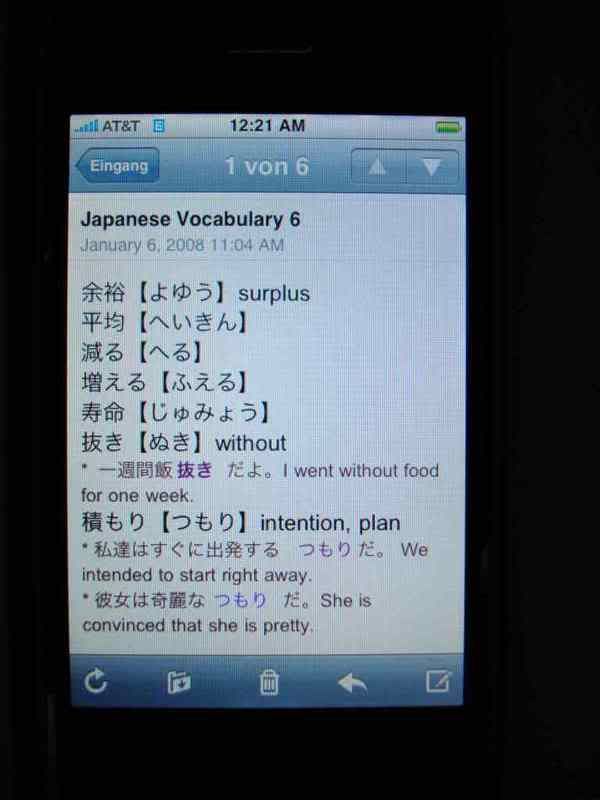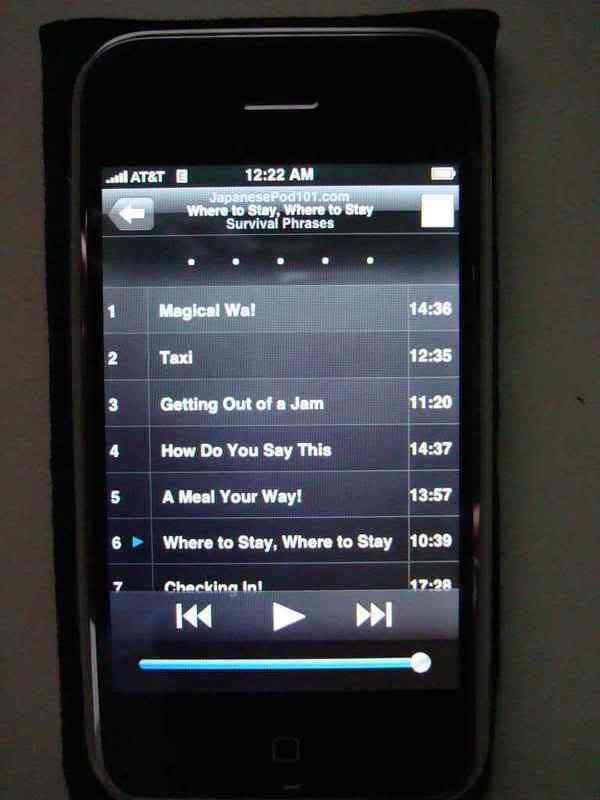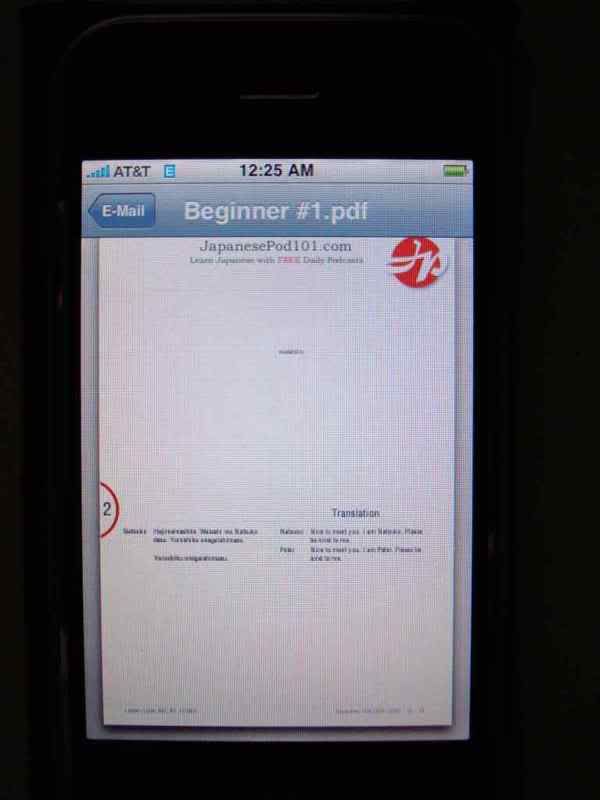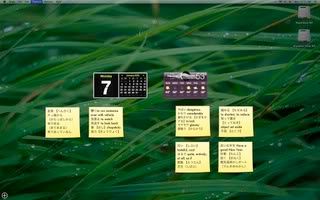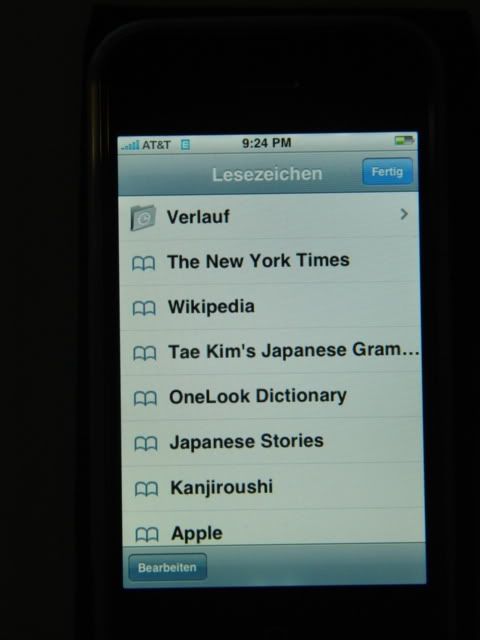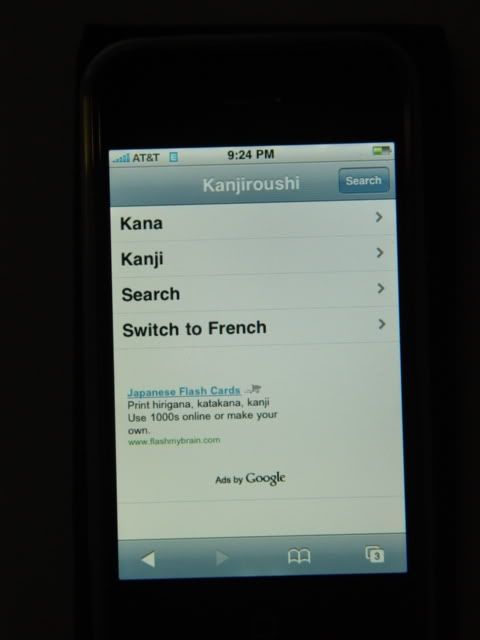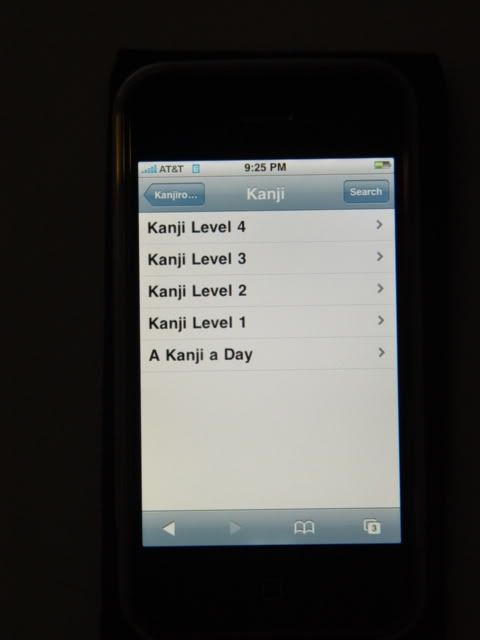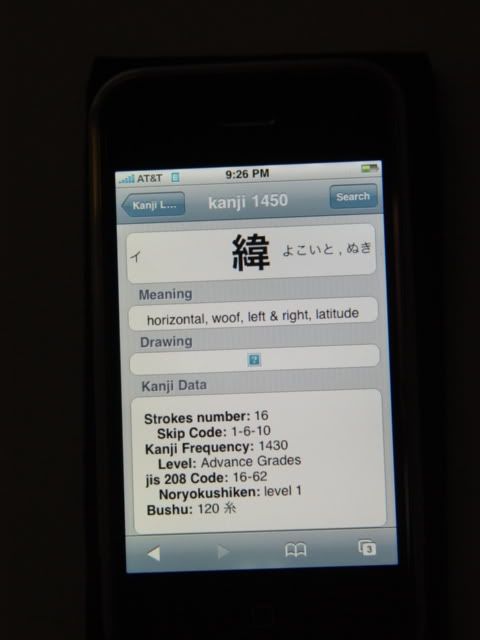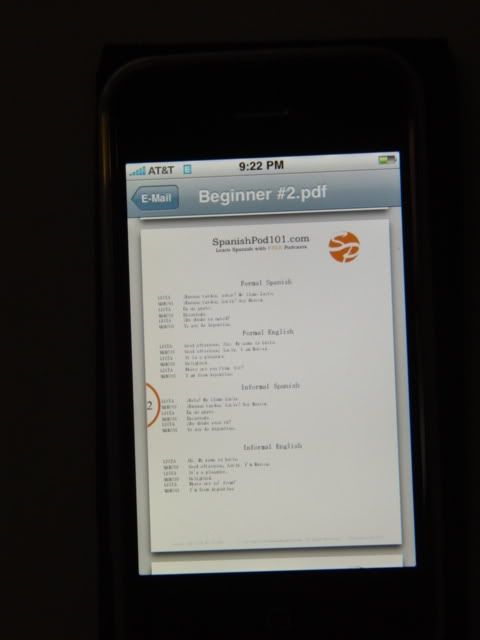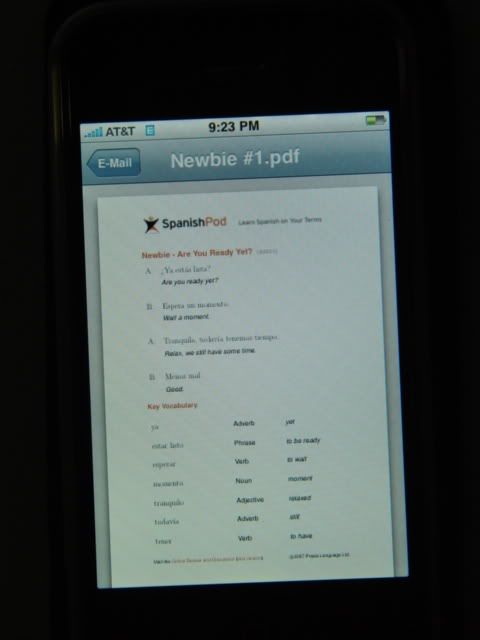I decided to get a sticky thread going where we can exchange our own study techniques that we've found successful.
one thing that i'm interested in building up a vocab. it's one of the biggest hurdles for japanese learners since the vocab and etymology bears no connection to indo-european languages.
sometimes i use ANKI to practice vocab (or phrases, or kanji), but since i don't carry my laptop everywhere with me, i can't use it all the time.
so what i do is make flashcards (japanese on one side, english on the other). after i guess the japanese word, i have to make a sentence with it. when i guess the next word correctly, i have to make a sentence with it, if possible, using a previously guessed word. i don't know if this is a great technique or anything, but its what i do.
how about you guys?
how do you memorize new vocab and phrases?
(also, if anyone wants to start a similar thread for verbs, kanji or something, copy this subject heading and change (vocab) to (kanji) or whatever and i'll sticky it for you!)
Lessons

Your Next Lesson

Say Hello in Japanese No Matter What the Time of Day
Absolute Beginner Season 1
Learn how to greet someone both formally and informally
Congratulations! You've finished everything on your pathway.
Add a new path?


